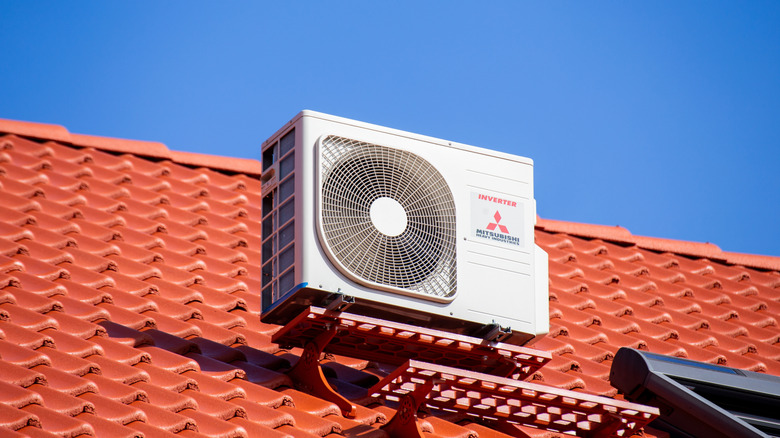Rick Steves Explains The European Philosophy Around Air Conditioning
Nothing beats the heat of a sweltering midsummer day like walking into a room blasting with air conditioning. But if you've traveled to Europe during the warm months, you probably noticed what's missing: AC, or "air con," as it's more commonly known there. While nearly 90% of American homes have air conditioning (per the U.S. Energy Information Administration), it's still relatively rare in Europe. The International Energy Agency estimates that only about 20% of European households have AC, though that number is projected to quadruple in the next 25 years. Among European countries, Italy leads in AC, but it's a far cry from American standards. And although some countries are retrofitting older buildings to stay cool, when you do find air con in Europe, it's often much weaker – Italy, Greece, and Spain have limited the maximum AC in public spaces to roughly 80 degrees Fahrenheit. Travel expert Rick Steves puts it simply: In Europe, AC is simply "for taking the edge off."
There are several reasons why Europe hasn't embraced air conditioning the same way the U.S. has, and in keeping with the culture, even American military bases in Europe have traditionally considered AC inappropriate or unnecessary. In many northern European countries, AC's been viewed as a luxury rather than a necessity; summers there tend to be shorter and milder, with heat waves historically short-lived and infrequent. Architecture has also played a role. Europe's predominantly older, stone buildings are thick with small windows, designed to keep interiors cool in summer and warm in winter. Rising energy costs — already high, but driven skyward by the Russia-Ukraine War – make cooling even more expensive. Many people across Europe also believe air conditioning makes you sick, causes sore throats, and spreads germs, and all of this adds fuel to the ongoing debate about how AC impacts the environment.
With a changing climate, Europe may have to rethink its AC philosophy
If you follow Rick Steves' advice for handling the European heat like a local, you'll forgo heavy bedding, borrow a fan, and wear breathable, lightweight clothes. It's less about cranking the AC and more about adjusting your lifestyle to beat the heat, like taking strategic breaks in the shade and timing outdoor activities for cooler parts of the day.
But as the world warms from climate change, Europe isn't immune. In 2025, temperatures across the continent soared so high that major tourist attractions and popular sights from the Eiffel Tower to the Acropolis temporarily closed to protect employees and visitors from extreme heat and risk of heat stroke. "I long prided myself on not needing air-conditioning," admits Steves. "But recently, I've been prioritizing AC when choosing accommodations for summer travel." Cities are particularly vulnerable to rising temperatures, where urban heat islands trap warmth in asphalt and concrete — something Europe's densest metro areas now face. Europe's heat-related death toll has risen to 175,000 annually, according to the United Nations, but analysts suggest some of these deaths could be prevented with the use of air conditioning.
Claims that AC uses electricity — which, because of the grid's dependence on fossil fuels, contributes to climate change – along with bureaucratic red tape, protection of cultural values, and even the perception that it's a wasteful luxury all play a role in Europe's reluctance to embrace more AC. While the debate simmers, travelers heading to Europe should take precautions, stay hydrated, and maybe even consider taking what Steves calls a "coolcation" instead.

